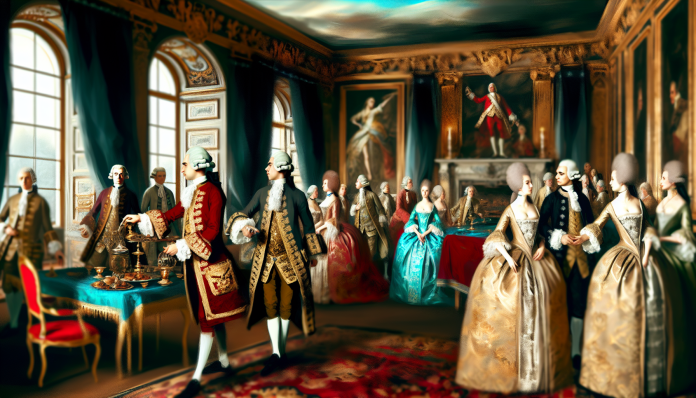Introduction
In 18th-century Europe, where monarchy intertwined with the very fabric of society, few figures were as colorful as Gustav III of Sweden. Ascending to the throne in 1771, he was known for his flamboyant style and progressive reforms. However, it was his hidden affairs and court intrigues that would captivate and scandalize the nation. This period, marked by shifting societal norms, saw moral attitudes that were often hypocritical—where the lives led in the shadows clashed dramatically with public decorum.
The Scandal
Gustav III’s reign was riddled with illicit love affairs, none more notorious than his relationships with prominent women at court, particularly the opera singer Anna Maria “Maja” Stenhammar. Their liaison became a source of public gossip, with whispers of their passionate encounters echoing through the halls of Stockholm’s royal palace.
-
Key Events:
- Anna Maria debuted in a ballet at the Royal Opera in 1773, quickly becoming a favorite of the King.
- Their affair was an open secret, prompting rumors that reached the ears of conservative factions within the court.
-
Public Reactions:
- While many at court indulged in gossip, the general populace displayed a deep ambivalence. Some respected Gustav’s personal freedoms while others condemned his actions as unbecoming of a monarch.
- One contemporary, the French diplomat François de La Rochefoucauld, noted, “The King engages with every talent, desire, and beauty within reach. His passion seems to ignore the chains of propriety.”
- Sources and Information:
- Letters exchanged between Gustav and his confidant, Axel von Fersen, indicate a casual dismissal of societal norms among the ruling elite, contrasting sharply with public expectations.
Moral and Cultural Analysis
The reaction from society was layered and complex. The nobility often turned a blind eye toward scandal, as long as it remained within acceptable bounds. However, the common people viewed it differently. Moralists used the King’s escapades to criticize the perceived moral decline of the monarchy, claiming that it disturbed the public peace and sanctity of family values.
Thus, while 18th-century society tolerated and even indulged monarchs’ affairs behind closed doors, the response nowadays would demand transparency, accountability, and respect for those involved. Gustav III’s flings, once viewed as a sign of royal freedom, would likely be reframed as symptomatic of larger societal issues surrounding privilege and morality.

